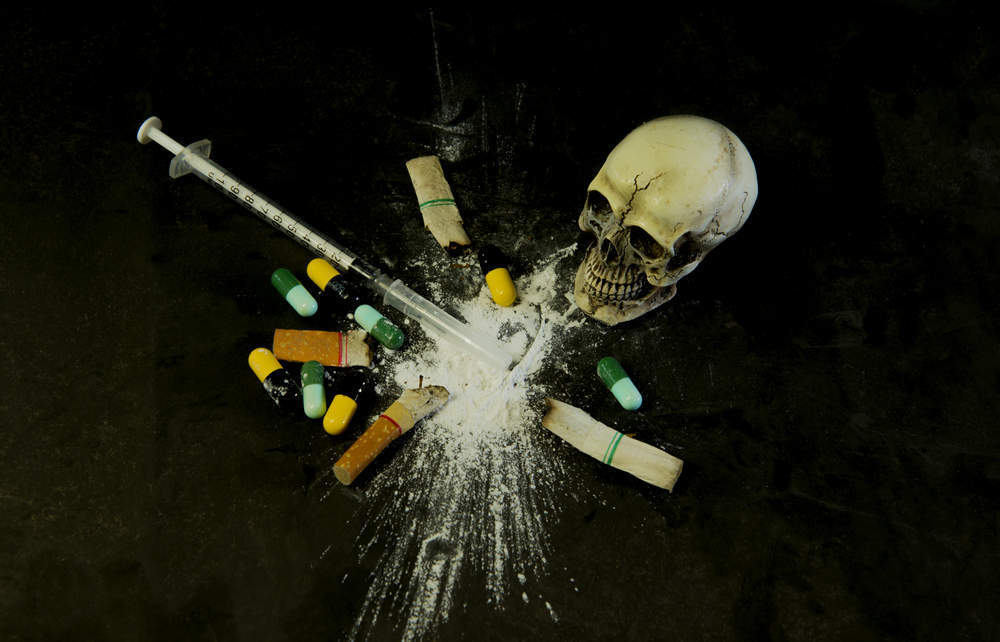
Located near the Gare de Nord in Paris is France’s main open drug scene. Drug addicts would gather to take sulfate morphine and smoke crack in car parks and doorways, public toilets and dark corners.
Addicts by the hundreds go to the salle de shoot at the local hospital to inject themselves with regulated doses of their own illicit drugs, under the watchful eyes of GPs, nurses, and social workers.
Inside the Drug Consumption Room (DCR), people can find small private booths equipped with sterile needles to administer their dose of heroin, or inhalation rooms for those who wish to smoke crack cocaine.
There are around 100 centres in operation across Europe, Australia and Canada according to the EMCDDA.
There is evidence DCRs are effectively fighting health risks for drug users. They reduce peoples need for street drugs, reduce crime and lead to more engagement between users and addiction services, according to research by the European Monitoring Centre for Drugs and Drug Addiction (EMCDDA).
DCRs aim to reduce the acute risks of disease transmission from unhygienic injecting, therefore reducing death rates of drug users and improving their health status through providing a protected environment for safer drug use.
How well do you really know your competitors?
Access the most comprehensive Company Profiles on the market, powered by GlobalData. Save hours of research. Gain competitive edge.

Thank you!
Your download email will arrive shortly
Not ready to buy yet? Download a free sample
We are confident about the unique quality of our Company Profiles. However, we want you to make the most beneficial decision for your business, so we offer a free sample that you can download by submitting the below form
By GlobalDataThe environment is also used promote education about the risks of drug use and improve access to social, health and therapeutic services.
DCRs also reduce drug use in public places and the presence of discarded needles and other related public order problems linked with open drug scenes.
But they are not taking off everywhere. Critics say DCRs might encourage drug use or provide an incentive for drug dealers.
While the central UK government has no plans to open any there are proposals for a facility in Glasgow run by the local council and set to opening early next year.
The Canadian government attempted to shut down Insite, the DCR in Vancouver, however the country’s Supreme Court ruled it should remain open saying:
Insite saves lives. It has been proven.
Alongside sterile injecting equipment, DCRs also provide additional services such as primary healthcare, addictions counselling and advice on topics such as housing or welfare. The facilities are typically run within hospitals but a separate entrance is used.
Drug related deaths in the UK are on the rise. In 2016 there were 3,744 drug related deaths recorded in England and Wales, compared to 2,597 in 2012. Last year there were the highest number of drug related deaths since records began in 1993.
Despite this the Home Office has said:
The UK will not contravene or undermine UN conventions or the Misuse of Drugs Act. We believe facilities for supervising the consumption of illegal drugs would fall foul of these. Therefore, no authority could be given to the piloting of initiatives to supervise the consumption of illegal drugs.
The Advisory Council on the Misuse of Drugs (ACMD) has made several recommendations to the Home Office to introduce DCRs and Emilia Crighton, director of public health at NHS Greater Glasgow and Clyde said:
Until someone is ready to seek and receive help to stop using drugs it is important to keep them as safe as possible while do they continue to use drugs.
Meanwhile DCRs have been found to not increase drug use, frequency of injecting, or higher rates of local drug-related crime, according to the EMCDDA.
There are some 11.7m people around the world who regularly inject drugs, 14 percent of which are HIV positive.
Meanwhile, people who inject drugs are 28 times more at risk of contracting HIV than those who don’t.
In the UK there are 165 new cases of HIV each year due to people injecting drugs, costing the NHS around £47m per year.







